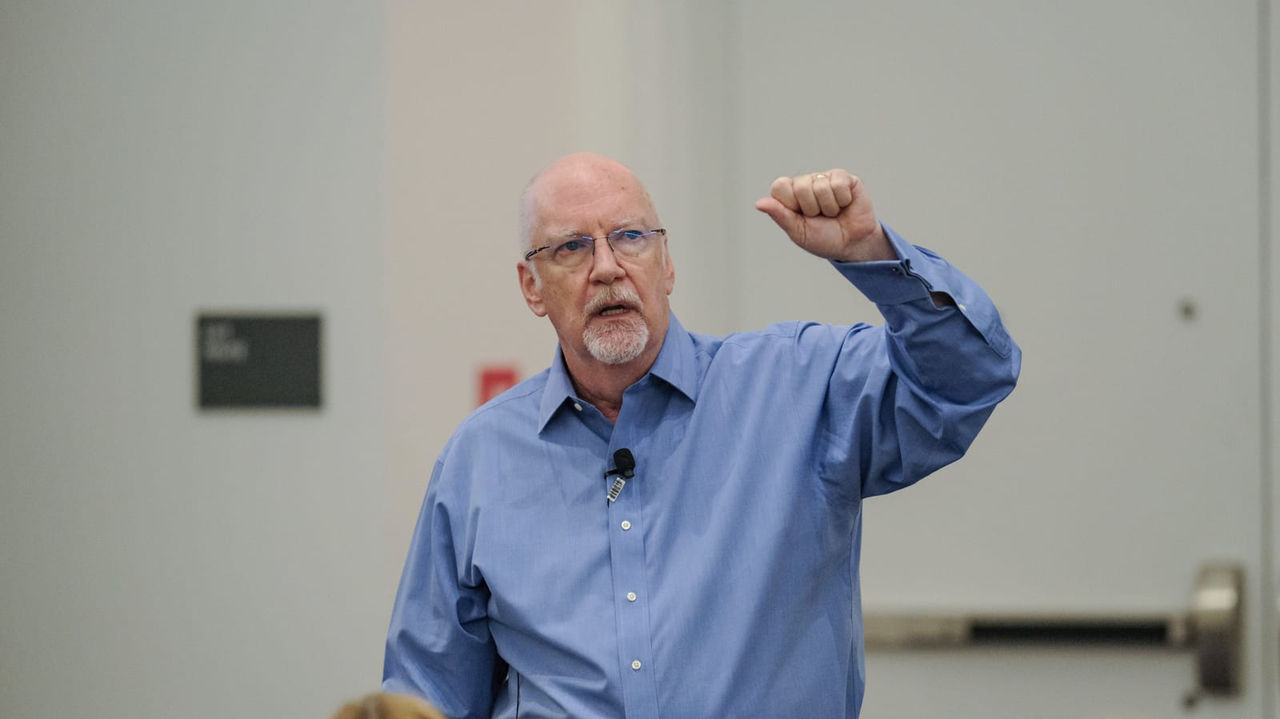
LAS VEGAS — HR professionals have rightly shifted away from subjectively discussing employees' attitudes, but they need to focus more on workers' behavior and differentiate between high-performing and low-performing employees.
Hunter Lott, an HR consultant and speaker based in Fountain Hills, Ariz., recommended implementing a behavior policy: Employees must be positive and get along with customers, clients, vendors and colleagues.
"Make it 50 percent of the job," he told attendees at the SHRM Annual Conference & Expo 2021 on Sept. 11 in a concurrent session called "Please Sue Me 2021."
Companies put up with too much misbehavior, he said.
He noted one example where an employee wouldn't talk to co-workers but instead would just shrug his shoulders and grunt. This went on for years and contributed to a toxic environment. When HR finally learned about it, he was put on first and final notice for willful shrugging of shoulders.
When the employee was fired soon thereafter for behaving this way again, he sued. He lost and was denied unemployment insurance. Co-workers came forward and asked the employer, "What took you so long?" according to Lott.
"Good people want to work around other good people," he remarked.
Differentiate Between Good and Bad
Lott also highlighted common HR practices that he referred to as bad habits, one example being the failure to differentiate.
Too often, HR emphasizes treating everyone the same to avoid getting sued. But this default mode leads to the absurd result of treating good- and poor-performing employees the same, Lott said.
"Differentiate based on performance and behavior," he advised.
If Mary is a top performer with great behavior and wants to work from home, let her. If Brock is a so-so performer, no chance.
When employers treat everyone the same, "it says to the 'A' player, you don't care [about them]," Lott said. "Make exceptions when you know it's the right thing to do."
Other Bad Habits
Lott also urged attendees not to implement probationary periods, except if the companies are unionized; in the fast-food industry in New York City (where at-will employment is banned in this line of work except during a 30-day probationary period); or in Montana, which doesn't have at-will employment.
Probationary periods are problematic for two main reasons, according to Lott. First, they set new employees off on the wrong foot, emphasizing that their work is potentially temporary. It's almost as though the employer is saying, "gotcha," Lott said, adding, "What a horrible way to start someone."
Probationary periods also create the argument that once employees have completed probation, the employer has lost the ability to fire them at will.
Calling a probationary period something else like an "introductory period" or "comfort time" doesn't resolve these problems, he added.
A review after an initial period is fine, Lott said, but he recommended that most employers strike probationary periods from their policies and handbooks.
Another bad habit is urging employees to keep salaries a secret, Lott said. He asked why doing so would be necessary, unless salaries are unfair and illegal. With the push toward pay equity, it's a good idea to scrap any policies calling for employees to keep their salaries secret.
Lott also recommended getting rid of the practice of calling for salary histories of job applicants. He asked why employers would rely on some other entity's appraisal of what an individual is worth to them.
Finally, Lott urged HR to guard against overconfidence in the organization. Maintaining an open mind and flexibility will help the organization make better decisions and adapt.
"Things are going to change constantly," he said. "When the rate of change outside the business is more than in the business, you're going to go out of business. Be adaptable."
An organization run by AI is not a futuristic concept. Such technology is already a part of many workplaces and will continue to shape the labor market and HR. Here's how employers and employees can successfully manage generative AI and other AI-powered systems.



